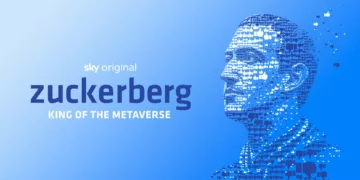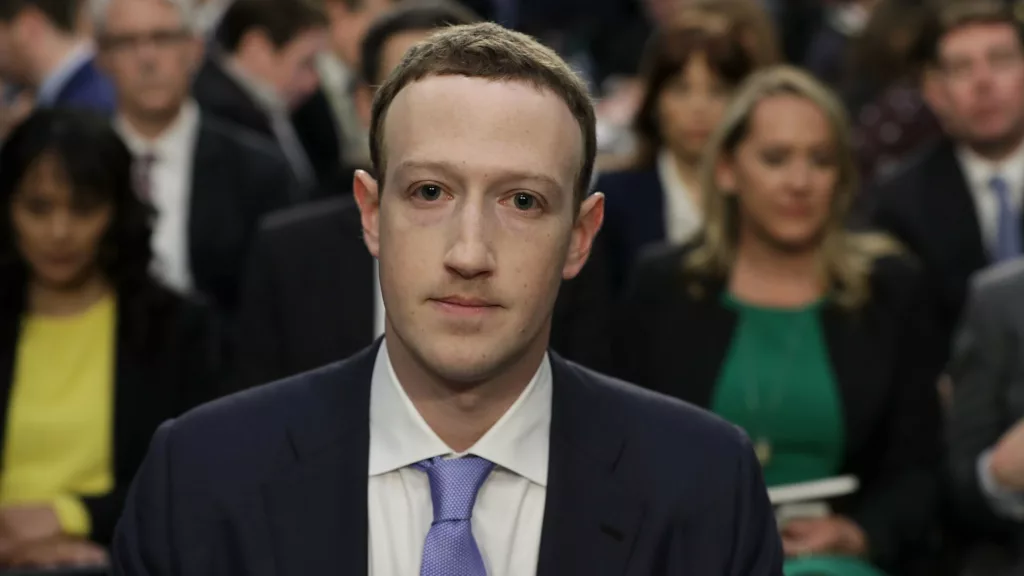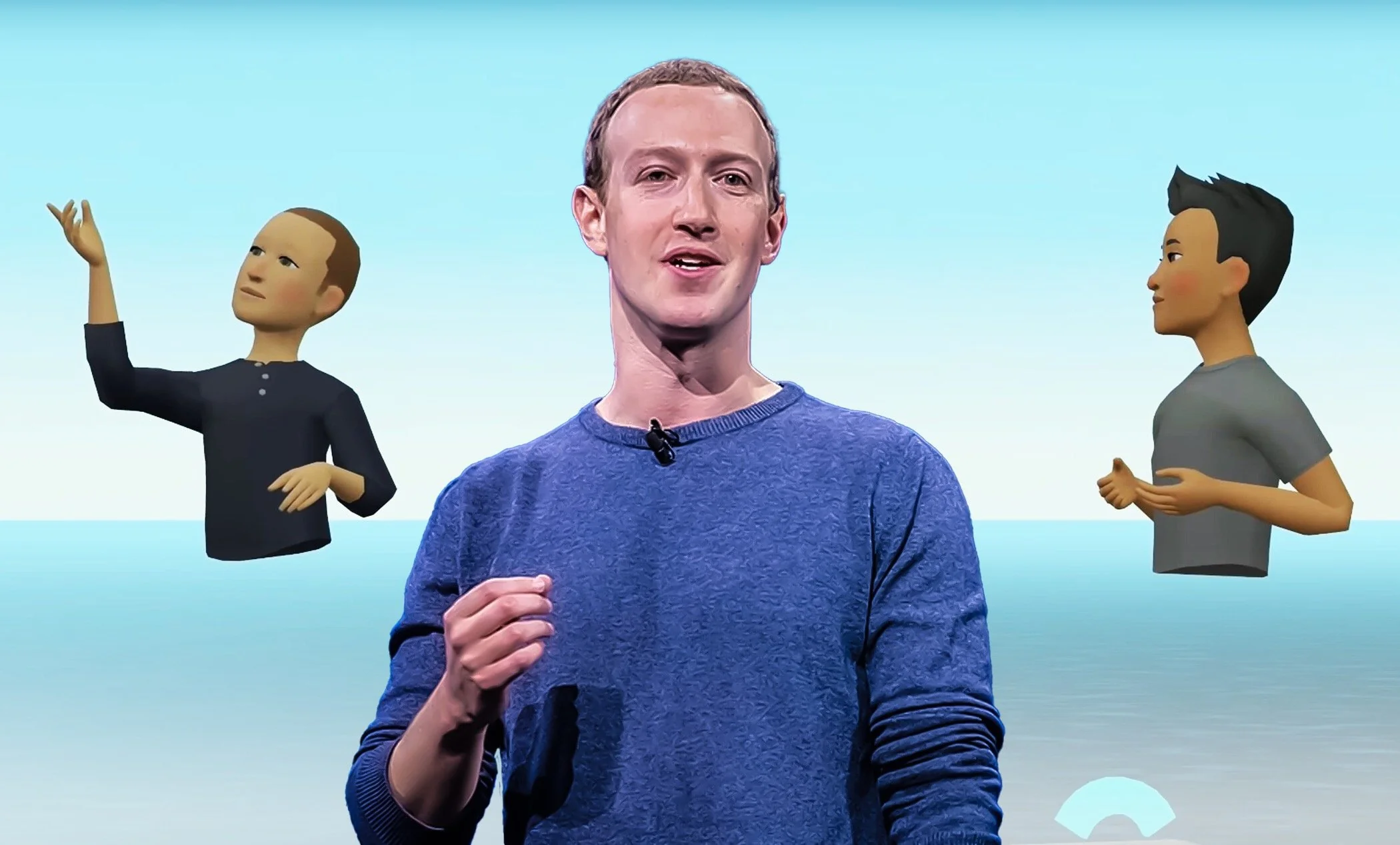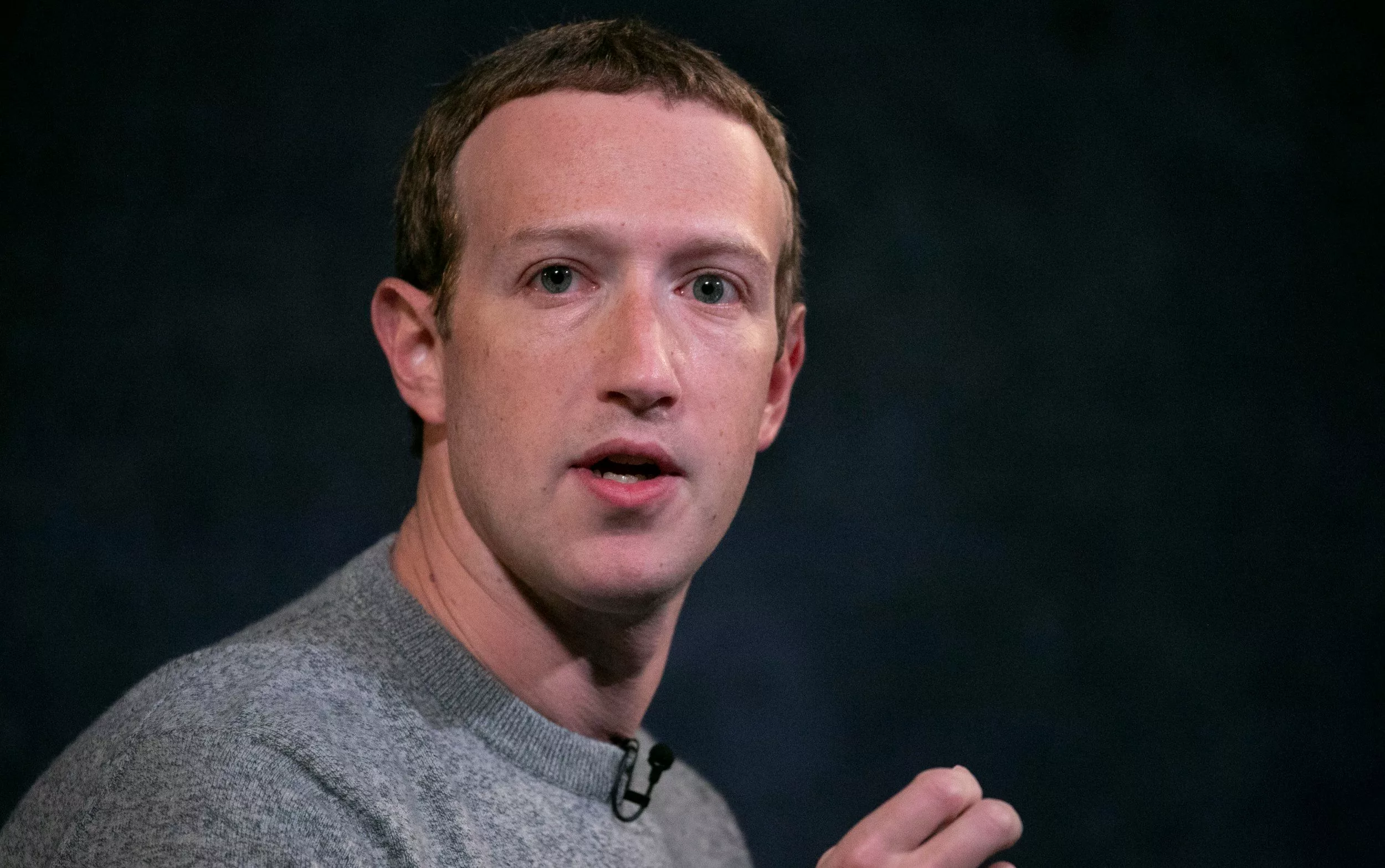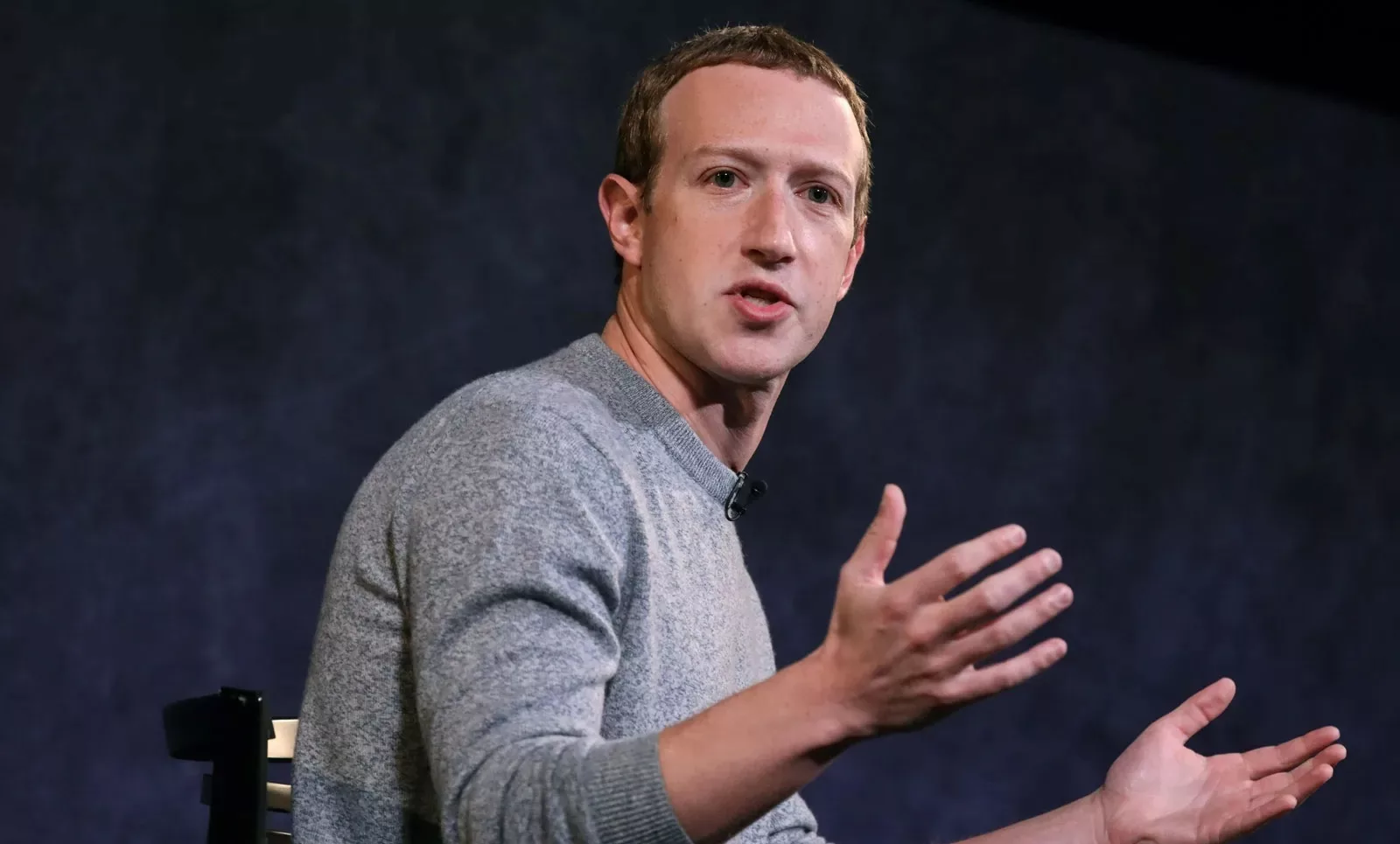Before Facebook, Mark Zuckerberg was just another Harvard whiz kid with big dreams and questionable ethics. While toiling away in his dorm in the early 2000s, Zuck infamously dismissed early Facebook users as “dumb f***s” for freely handing over their personal information. Yet that data would soon turn his scrappy start-up into a global behemoth.
Within a few years, Facebook evolved from a campus curiosity into an essential platform for activism and connection. The Arab Spring. The quest for LGBTQ rights. The plight of refugees. Social causes across the world relied on Zuck’s creation to organize, fundraise, and spread their messages.
But Facebook’s good deeds soon soured. Bad actors exploited the site to incite violence, promulgate conspiracy theories, and meddle in elections. Critics blamed Zuckerberg for prioritizing growth over safety, valuing profits over people. It was a 180-degree turn from those idealistic early days.
The new Sky documentary Zuckerberg: King of the Metaverse promises an “inside story” on one of Big Tech’s most polarizing figures. Tracking Facebook’s entire lifespan, it examines how a student side-hustle morphed into a force reshaping politics, culture, and personal privacy across the globe.
Through first-hand accounts from early employees, journalists, and DC power players, the film unpacks pivotal moments in Zuckerberg’s evolution. It probes his moral compass, political beliefs, and personal motivations. After nearly 20 years under constant scrutiny, does anyone truly know the real Mark Zuckerberg? Or is his public persona — like so many Facebook profiles — carefully curated to conceal as much as it reveals?
A Nerd is Born: Zuck’s Humble Roots
Long before anyone uttered the phrase “metaverse,” Mark Zuckerberg was just another awkward computer geek at Harvard. While his fellow students partied, young Zuck kept his head down, obsessed with coding and creating. Late one night in 2003, the 19-year-old unveiled an early version of Facebook to a small group of classmates. Dubbed “The Facebook,” it allowed students to make searchable profiles tied to campus emails and phone numbers.
His fellow dorm residents ate it up. Within 24 hours, over half of Harvard undergrads had active accounts. As Zuckerberg later told a friend via IM: “Everyone’s been talking a lot about it. I just opened it up to Yale and Stanford and I’ve had over 4,000 emails from people wanting in…people just submitted it. I don’t know why. They ‘trust me.’ Dumb f***s.”
And just like that, Zuck revealed his rather dim view of personal privacy and social media users in general. To him, the early adopters were guinea pigs to exploit, not real people deserving respect or transparency. It was a chilling sign of ruthlessness for someone so young.
Yet despite Zuckerberg’s cocky bravado, Facebook’s first year felt largely innocent. Few could foresee the behemoth it would become. Students happily posted grainy party photos, relationship statuses, and rambling late-night revelations, believing their words were just for campus eyes.
With gossip flying around Harvard’s network, Facebook spread like wildfire. As Zuckerberg later remembered, “Every day we would code and push that to the site…just what college kids would think is awesome and funny amongst ourselves.”
Within months, Facebook expanded beyond the Ivy League to reach schools nationwide. Venture capitalists came calling, smelling big profits from Zuck’s dorm-room project. But the founder played hard to get, convinced his scrappy start-up could change the world on its own terms.
Little did he know the true costs of that explosive growth. Behind the scenes, questionable decisions were being made that would eventually shatter public trust. The “innocent” phase of Facebook would soon end, replaced by far darker days. But at the time, it was all blue skies for the platform — and for the newly-minted boy wonder who created it.
“Delve into a gripping real-life mystery with our They Called Him Mostly Harmless review. This documentary unravels the enigmatic tale of a hiker found dead with no identity, showcasing the power of internet sleuthing. A must-watch for true crime enthusiasts intrigued by the complexities of human nature and digital detective work.”
When “Connecting People” Goes Too Far
By 2010, Facebook was far more than just a campus chat board. Under Zuckerberg’s watch, it morphed into a worldwide force for activism…or so it seemed.
When anti-government protests erupted in Tunisia that year, activists utilized Facebook to organize rallies, share police brutality footage, and ignite outrage. Analysts credited the site with fueling public dissent during Arab Spring demonstrations across North Africa and the Middle East. The Zuck hype machine went into overdrive.
“Facebook has given the protesters in the Arab world a voice, a secure means to communicate,” claimed one think tank expert in early 2011. Indeed, the platform was flooded with fiery calls for revolution during the Egyptian uprising against Mubarak. Without Facebook acting as an organizing hub, the public outcry may have never reached critical mass.
Heartened by the role his company played in toppling tyrants, Zuckerberg welcomed democracy advocates and world leaders to speak to Facebook HQ. Politicians lined up to praise the site’s empowering effect on marginalized groups.
Yet some employees grew uneasy about users in volatile regions. “We did not think through how this platform would be used by authoritarian governments themselves,” admits one former exec in the documentary. “The platform gave them incredible new leverage over their own people.”
Caught up in expansion fever, Facebook recklessly surged into developing markets without considering how fraudsters and dictators might exploit the service. Case in point: Myanmar, where military officials weaponized Facebook to spread anti-Muslim hate speech and graphic content during the Rohingya genocide.
Despite public criticism, Zuckerberg mostly dismissed complaints as growing pains, convinced the overall benefits outweighed the damage. As long as profits climbed ever upward, why change course? But the facade was cracking.
By 2016, even Facebook’s early backers recoiled at its laissez-faire policies around misinformation. “They talk about connecting people,” scoffed one journalist covering the company. “But they should also talk about protecting people.”
As traditional safeguards collapsed, foreign saboteurs infiltrated American voters via Zuck’s own tools. Data firm Cambridge Analytica notoriously scraped 87 million profiles without consent to create psychographic voter models. Their campaign nudged swing state votes toward Trump, who himself weaponized dishonest Facebook ads on an unprecedented scale.
Facebook largely ignored the ethical red flags to chase revenue growth above all else. And despite Zuckerberg’s idealistic rhetoric around global community, cold hard capitalism appeared to be the true guiding force. No one could deny the runaway power of Facebook any longer…for better or worse.
Facebook’s House of Horrors
By 2016, Mark Zuckerberg’s reputation took a sharp plunge from media darling to reviled robber baron. As growth exploded, so did Facebook’s creepy baggage — and simmering public outrage.
The Cambridge Analytica data breach of ’16 marked a turning point in how the media covered the social giant. The scheme involved an academic harvesting personal info from 87 million unwitting profiles. Consulting firm Cambridge Analytica weaponized the psychographic models for voter targeting purposes, later boasting they nudged the Brexit vote and Trump’s ascendancy.
Instead of properly auditing apps that slurped up user data, Facebook higher-ups ignored red flags for years. Employees were explicitly discouraged from questioning leadership, lest they be forever branded as traitorous “rats.” When the scandal broke, Zuckerberg conveniently pinned blame on a single rogue app developer, denying personal accountability.
But the greatest horrors lay overseas in Myanmar, where Facebook’s hands-off policies enabled genocide. After allowing government officials to freely spew hate speech about Rohingya Muslims on its platform, over 24,000 innocent citizens were slaughtered in 2017. When grilled by reporters, Zuck passed the buck: “I don’t think that the right response here is for Facebook to leave.”
Tell that to Rohingya refugees who lost their families, thanks to rabblerousing viral posts on Facebook targeting Muslims as vermin infesting the nation.
“The platform gave bad actors incredible new leverage over their own people,” admits former exec Katie Harbath in the documentary. “We did not think through how this platform would be used by authoritarian governments themselves.”
Internal reform seemed unlikely with Zuckerberg opposed to any meaningful oversight. Whistleblower Frances Haugen’s 2021 congressional testimony blew open just how much toxicity the CEO allowed in order to maximize profits and inflate stock prices.
“Zuckerberg himself holds 54 percent of voting shares,” Haugen revealed. “There is no agency with jurisdiction over Facebook.” Employees were aware of algorithm tweaks that spiraled teens down anorexia and body dysmorphia rabbit holes. Misinformation ran rampant. Rogue autocrats blatantly manipulated elections.
But time and time again, sweeping structural changes were shot down or undermined by Zuckerberg and his loyalists. Haugen’s leaked documents confirmed Facebook repeatedly prioritized empire expansion over human dignity.
“It could have been a turning point,” laments one critic about Zuckerberg’s light wrist-slapping from Congress in 2018. “But it sounded like your dad was asking the questions.” Once again, the boy wonder dodged true punishment as spineless legislators betrayed millions of ravaged Facebook users.
And yet with billions hooked on his services, Zuckerberg kept spinning new lies from his Mountain View perch each time a scandal broke. No longer the idealistic, eager student coding in his dorm room for peers, the CEO transformed into a morally bankrupt robot, drunk on megalomania and uncontrolled power. Mark may have founded Facebook, but the Frankenstein clearly outgrew even its creator’s grasp.
Trying to Tame the Beast
With public outrage at its peak after the Cambridge Analytica debacle, Congress dragged a squirming Mark Zuckerberg before its senate committee in 2018, questioning the mogul over two excruciating days of testimony.
Decked out in a neatly pressed suit rather than his signature hoodie, Zuckerberg leaned heavily on platitudes about “connecting people” and “community-building” when grilled on his site’s failings. Critics blasted Congress for lobbing softball questions and accomplishing little.
“It could have been a turning point,” argues director Nick Green in the documentary. “But it sounded like your dad was asking the questions.”
Indeed, vanilla inquiries allowed Zuckerberg to dodge concrete commitments to reform. The CEO vaguely promised to “do better” without pledging specific policy changes around data privacy or misinformation. And with Republicans benefiting from Facebook’s loose rules, bipartisan calls for actual accountability never coalesced into action.
Stakeholders urged dividing or regulating the monopoly Zuckerberg built — to no avail. Despite widespread outrage over foreign trolls infiltrating platforms, election engineering via Big Data, and algorithms warping teens’ body images, the wunderkind remained firmly in control of the weapon he created.
Behind the scenes, Facebook scrambled for rehab. Sandberg aggressively courted Black activists to deflect cries of enabling racial attacks and police brutality viral videos. New board members were cherry-picked to “bring more oversight.”
Seeking to further detract his tarnished image after being grilled on Capitol Hill, Mark the mercenary gradually shifted to soft-focused Mark the family man. He traded tech bro uniform for wholesome cardigans, made sure to include the wife and kids at public appearances, and posted gauzy photos of household bliss online.
Yet the nice guy act couldn’t mask the fact he still held authoritarian control over data and decisions flowing through Facebook — even after a name change to the cuddlier “Meta” in 2021. Despite over a hundred lobbying tweaks since Cambridge Analytica first triggered alarms, independent supervision remains virtually nonexistent. Employees still fear being forever blacklisted as “rats” if speaking against Zuckerberg’s wishes.
And as viewers learn by the documentary’s conclusion, true accountability stays elusive as Mark continues pulling levers behind Oz’s curtain. The damage is done, and the emperor has no clothes — but his kingdom still stands, as impenetrable as ever.
Does This Doc Unravel the Enigma?
As a history lesson in Facebook’s controversies, Zuckerberg: King of the Metaverse delivers. Director Nick Green skillfully braids together archive clips, cultural snapshots, and talking head commentary to chart the meteoric (and very bumpy) trajectory of Mark Zuckerberg’s infamous social behemoth.
Yet for all its strengths summarizing Facebook’s greatest hits and misses, this documentary struggles to humanize or psychoanalyze its inscrutable founder. Relying on Zuck’s prepackaged statements, we glean little about his quirks, motivations, or political beliefs from those who know him best. The film asks whether anyone can truly comprehend this socially awkward tech titan with borderline personality disorder traits — but contributes scant insights itself.
Brief childhood anecdotes — little league photos, his mom’s affectionate “prince” nickname — merely skim the surface. And despite featuring ex-staffers heavily, their neatly vague reflections reveal more about Big Tech’s culture of pathological secrecy than the Fayetteville-born prodigy. Critics dismiss attempts positioning Facebook’s shift from Time “Person of the Year” to “tarnished dictator” as a morality tale about the corrupting nature of power, when much is left unexplained about Zuckerberg himself.
Equally vexing is the erratic editing bouncing viewers across decades and continents at dizzying speed. Nearly every soundbite or news clip halts after less than 30 seconds — useful for dramatic momentum but denying more thoughtful analysis about Facebook’s cultural ubiquity and unintended consequences.
It’s a missed chance to meaningfully engage one of the most quietly impactful visionaries (or notorious villains, depending who you ask) of the early internet age. But for an introductory class in just how profoundly one nerd’s dorm room tinkering reshaped human interaction itself, Zuckerberg: King of the Metaverse pulls together an eye-opening syllabus — with room for a future graduate-level sequel.
The Saga Continues
Even after nearly 20 years under constant limelight, Mark Zuckerberg remains an enigma shrouded behind the extracted data and engineered social experiences of billions. Does absolute power innately corrupt even the most idealistic technologists? Or was Facebook’s distressing fall from grace unavoidable for any platform wedging itself so deeply into humanity’s collective psyche?
Zuckerberg: King of the Metaverse raises more uneasy questions than definitive answers. Yet there are harsh lessons here for consumers and governments alike about the perils of blind trust. Allowing brilliant but ethically agnostic coders to carelessly hack our social fabric has enabled unprecedented connection—and unleashed unchecked demons. Few of us foresaw the trauma algorithmically amplified misinformation could inflict upon elections, economies, and vulnerable minds when we joyfully posted that first status update years ago.
What will redeem social media as its promise turns perilous? Certain hard truths seem self-evident: Transparency and oversight matter. Growth has consequences needing thoughtful navigation, not dismissal as necessary road bumps. And both leaders and users share responsibility for their media diets—junk or otherwise.
My take? While limited in further illuminating its central figure, Zuckerberg: King of Metaverse earns high marks contextualizing the cultural force Facebook has become…and the high costs of that influence neglected for far too long. The saga continues, with all users and shareholders as characters in this still-unfolding human drama. But the conclusion remains unwritten. For now.
The Review
Zuckerberg: King of the Metaverse
Zuckerberg: King of the Metaverse effectively chronicles Facebook’s messy coming-of-age from dorm room lark to geopolitical hazard, though it rarely pierces the veil around its inscrutable creator. This brisk documentary helps contextualize social media’s profound footprint without downplaying the destruction enabled by profit motives and lack of oversight. Yet Mark himself remains an emotionally stunted cipher — perhaps the point after all.
PROS
- Effectively weaves together history, commentary, and cultural context
- Access to insightful insider perspectives from former employees
- Raises important questions about ethics and accountability
- Fast-paced editing keeps viewer engaged
- Essential viewing for understanding Facebook's impact
CONS
- Fails to provide meaningful insights into Zuckerberg
- Lacks depth in analysis and critique
- Choppy editing style prioritizes drama over substance
- Avoids recent controversies like the 2021 whistleblower
- Doesn't fully deliver on promise of "inside story"
